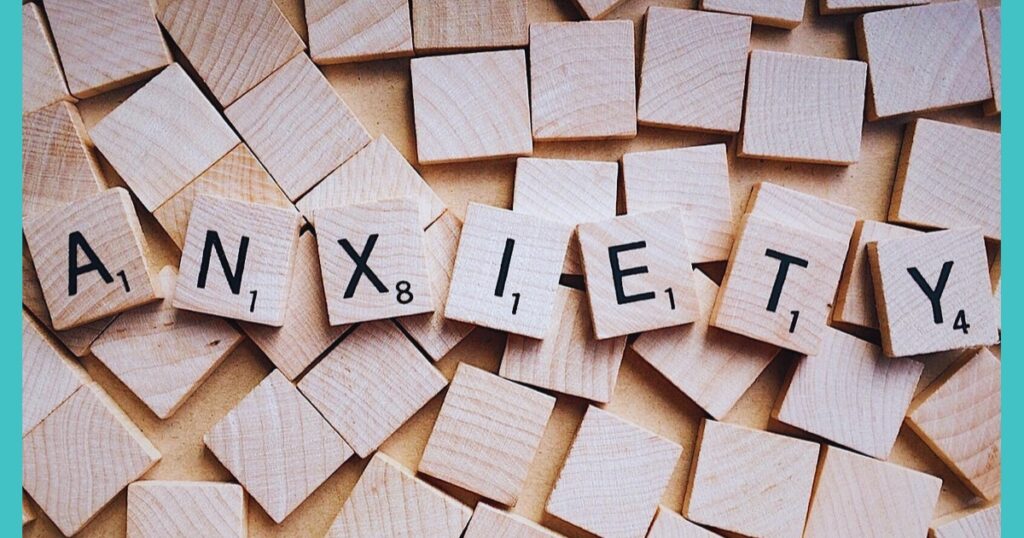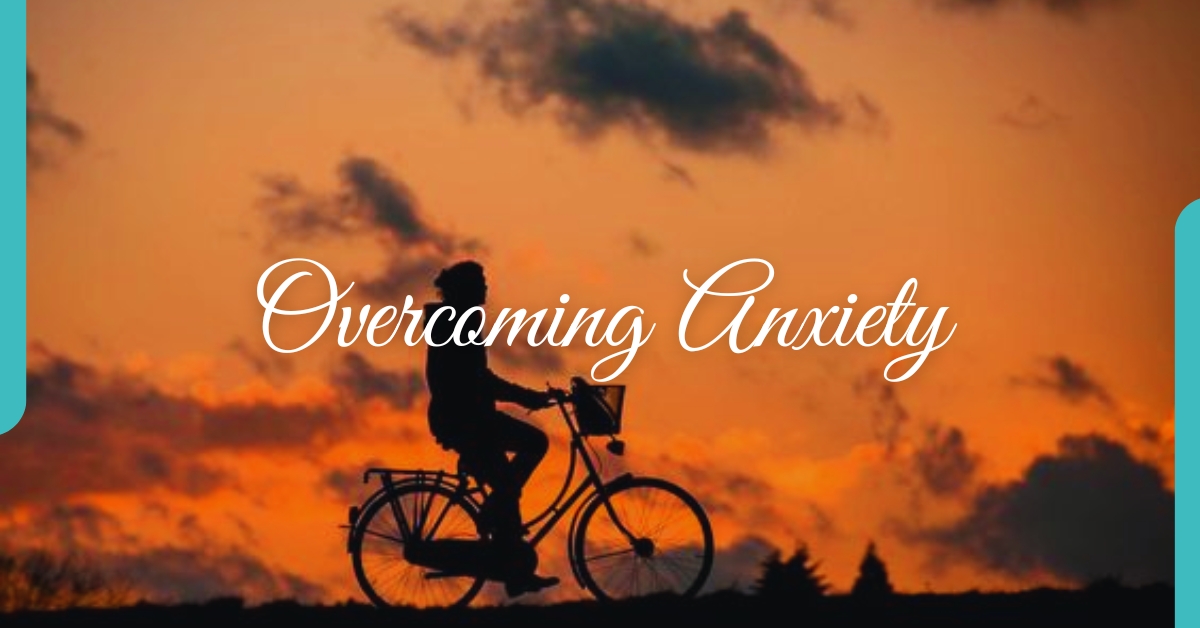Tips and Strategies to Overcoming Anxiety and Managing Stress
Anxiety can creep in like an unwelcome guest at the most inconvenient times. Whether it’s the pressure of deadlines, personal challenges, or global uncertainties, many find themselves grappling with feelings of unease and stress. The good news is that you are not alone on this journey; millions face similar battles each day.
Overcoming anxiety is not just about enduring these feelings it’s about transforming them into opportunities for growth and resilience. Imagine waking up each morning with a sense of calm rather than dread, equipped with tools to tackle whatever life throws your way. These effective tips and strategies can empower you to manage stress and reclaim your peace of mind.
From mindfulness practices to practical lifestyle changes, these approaches aim not only to alleviate anxiety but also to foster a more balanced and fulfilling life. These actionable techniques will help you navigate life’s complexities with confidence and grace.
What Makes You Afraid?
Fear often stems from the unknown or our perception of danger, whether it’s related to personal experiences, societal pressures, or even internal expectations. Anxiety can manifest in various forms be it social situations, performance pressures, or health concerns. Recognizing the root causes of these fears is a crucial first step in overcoming them.

Overcoming anxiety is not an overnight process; it requires patience and self-compassion. Techniques such as mindfulness meditation, cognitive behavioral therapy (CBT), and gradual exposure to feared situations can be incredibly effective. Seeking support from friends, family, or mental health professionals can provide valuable perspectives and encouragement on your journey toward managing fear.
What Makes You Anxious?
Anxiety can stem from various sources, including personal experiences, societal pressures, or even the fear of the unknown. It manifests in situations that feel overwhelming or out of control, such as public speaking, social interactions, or significant life changes. The anticipation of negative outcomes often amplifies these feelings, creating a cycle that can be difficult to break.
Overcoming anxiety often involves a combination of self-awareness and practical strategies. Techniques such as mindfulness and deep breathing exercises can help ground you in the present moment and reduce immediate feelings of panic. Seeking support from friends, family, or mental health professionals can provide valuable perspectives and coping mechanisms.
What Does Fear and Anxiety Feel Like?
Fear and anxiety often manifest as a complex mix of physical sensations and emotional turmoil. Physically, you might experience symptoms like a racing heart, rapid breathing, or even a sense of tightness in your chest. These bodily reactions can create a feedback loop that amplifies feelings of panic or dread.

Emotionally, fear may feel like an overwhelming sense of impending doom, while anxiety can manifest as persistent worry or restlessness about future events or situations. Overcoming anxiety is a journey that often involves understanding and addressing these feelings head-on.
Techniques such as mindfulness, deep breathing exercises, and cognitive-behavioral strategies can help manage the symptoms effectively. Seeking support from friends, family, or professionals can provide valuable perspectives and coping mechanisms. Remember that it’s okay to seek help; acknowledging your feelings is the first step toward reclaiming control over your life.
Among the potential outcomes are the following:
- Your heart beats rapidly; it may feel erratic.
- You breathe rapidly.
- You feel as though your muscles are feeble.
- You perspire a much.
- Your bowels feel loose or your stomach churns.
- You have trouble focusing on anything else.
- You are feeling lightheaded.
- You feel immobile.
- You are unable to eat.
- You have both hot and cold chills.
- Your mouth becomes dry.
- Your muscles become extremely tense.
Why do I Feel Like This When I’m not in any Real Danger?
Feeling anxious even when you’re not in any real danger is a common experience and can be attributed to several factors. Our brains are wired to respond to perceived threats, and sometimes this response can be triggered by stressors that aren’t life-threatening. Past experiences, unresolved traumas, or even daily pressures can create a heightened state of alertness.
To overcome anxiety, it can be helpful to engage in mindfulness practices that ground you in the present moment. Techniques such as deep breathing, meditation, or progressive muscle relaxation can help calm your mind and body. Understanding the root causes of your anxiety through journaling or speaking with a mental health professional can provide clarity and coping strategies tailored to your needs.
Why Won’t My Fear go Away and Leave me Feeling Normal again?
Fear and anxiety can be incredibly persistent, often feeling like an unwelcome companion that refuses to leave. One reason for this is that our brains are wired to respond to perceived threats, and when we experience anxiety, it can create a feedback loop where fear intensifies rather than diminishes. This response is rooted in our survival instincts; When the threat is not physical or immediate, like social situations or future uncertainties, these feelings can become overwhelming and seem unmanageable.
Overcoming anxiety often requires a multifaceted approach. Techniques such as mindfulness, and exposure therapy can help you reframe your thoughts and gradually confront the sources of your fear. It’s important to remember that healing takes time; it’s not about eliminating fear but learning to manage it effectively so you can regain a sense of normalcy in your life. Seeking support from friends, family, or mental health professionals can also provide valuable tools and encouragement on your journey toward feeling more at ease.
What is a Panic Attack?
A panic attack is a sudden episode of intense fear or anxiety that triggers severe physical reactions, even when there is no real danger or apparent cause. Symptoms often include a racing heart, shortness of breath, dizziness, trembling, and feelings of impending doom. These episodes can last anywhere from a few minutes to half an hour and may leave individuals feeling exhausted and confused afterward.

Overcoming anxiety and panic attacks often involves a combination of strategies. Cognitive-behavioral therapy (CBT) is particularly effective in helping individuals understand their thought patterns and develop coping mechanisms. Mindfulness techniques, such as deep breathing exercises and meditation, can also help ground you during an attack.
What is a Phobia?
A phobia is an intense, irrational fear of a specific object, situation, or activity that leads to significant distress and avoidance behavior. Unlike general anxiety, which can be more pervasive and affect various aspects of life, phobias are typically focused on particular triggers, such as heights (acrophobia), spiders (arachnophobia), or social situations (social anxiety).

Overcoming anxiety related to phobias often involves a combination of therapeutic approaches. Cognitive-behavioral therapy (CBT) is particularly effective as it helps individuals confront their fears in a structured way while challenging negative thought patterns. Gradual exposure to the feared object or situation often referred to as exposure therapy can also be beneficial.
How do I know if I Need Help?
Recognizing when you need help with anxiety can be challenging, but there are several signs to look out for. If you find that your anxiety is interfering with daily activities like work, relationships, or self-care it may be time to seek support. If you’re experiencing persistent feelings of worry or fear that seem disproportionate to the situation at hand, this could indicate that professional guidance would be beneficial.
Another key indicator is how well you manage your anxiety on your own. If you’ve tried coping strategies like exercise, mindfulness, or talking to friends but still feel overwhelmed, it might be a sign that deeper intervention is necessary. Seeking help is not a sign of weakness; rather, it’s an important step toward understanding and managing your anxiety more effectively.
Read more Zero Based Thinking – Principles for Making Tough Decisions
How can I Help Myself?
Overcoming anxiety can feel overwhelming, but there are several effective strategies you can implement to help yourself. Establishing a routine that includes regular physical activity, a balanced diet, and sufficient sleep is crucial. Exercise releases endorphins, which can improve your mood and reduce feelings of anxiety.

Another important aspect is to challenge negative thought patterns. Keeping a journal where you write down your anxious thoughts and then counter them with positive affirmations or rational responses can be incredibly beneficial. Connecting with others whether through support groups or talking to friends and family can also provide relief, as sharing your experiences often diminishes their power.
- Face Your Fear if you can
- Know Yourself
- Talk to a Trusted Friend or Family Member
- Exercise
- Relax
- 4-7-8 Breathing Technique
- Healthy Eating
- Avoid Alcohol, or Drink in Moderation
- Faith/Spirituality
Face Your Fear if you can
Overcoming anxiety often requires us to confront our fears head-on. Facing your fear can be an empowering experience that allows you to understand the root of your anxiety and gradually diminish its power over you. Start by identifying what specifically triggers your anxiety, and then break those fears down into manageable steps.
Know Yourself
Overcoming anxiety often begins with the journey of self-discovery. Understanding your triggers, and emotional responses is crucial in managing anxiety effectively. Take time to reflect on situations that provoke anxiety and explore the underlying beliefs that fuel these feelings. Journaling can be a powerful tool in this process, allowing you to articulate your thoughts and gain clarity.
Talk to a Trusted Friend or Family Member
Overcoming anxiety can feel daunting, but talking to a trusted friend or family member can make a significant difference. Sharing your feelings with someone who understands and cares about you creates a supportive environment. This connection allows for the exchange of coping strategies that might have worked for them in similar situations.
Exercise
Exercise is a powerful tool for overcoming anxiety, as it promotes the release of endorphins, often referred to as feel-good hormones. Engaging in physical activity can help distract your mind from anxious thoughts and provide a sense of accomplishment. Whether it’s a brisk walk, a jog, or a yoga session, moving your body can significantly improve your mood and reduce stress levels.
Relax
Overcoming anxiety often starts with understanding its roots and recognizing that it’s a common experience many people face. One effective way to relax is through mindfulness practices, such as meditation or deep breathing exercises. These techniques help ground you in the present moment and can significantly reduce feelings of overwhelm.
4-7-8 Breathing Technique
The 4-7-8 breathing technique is a simple yet powerful method for managing anxiety and promoting relaxation. Developed by Dr. Andrew Weil, this technique involves inhaling for four seconds, holding the breath for seven seconds, and exhaling slowly for eight seconds. This increases oxygen flow and encourages mindfulness, which can be particularly beneficial during heightened stress or anxiety.
Healthy Eating
Healthy eating can play a significant role in managing anxiety. Nutrient-rich foods, such as fruits, vegetables, whole grains, and lean proteins, provide the vitamins and minerals that support brain health and emotional well-being. Omega-3 fatty acids found in fish can help reduce anxiety symptoms, while complex carbohydrates can stabilize blood sugar levels and improve mood.
Avoid Alcohol, or Drink in Moderation
When it comes to managing anxiety, the decision to avoid alcohol or drink in moderation can significantly impact your mental health. Alcohol is often seen as a social lubricant, but it can also exacerbate anxiety symptoms. While it may provide temporary relief or relaxation, alcohol is a depressant that can lead to increased feelings of anxiety and stress once its effects wear off.
Faith/Spirituality
Faith and spirituality can play a significant role in overcoming anxiety by providing individuals with a sense of purpose, belonging, and inner peace. Many people find solace in their beliefs, whether through prayer, meditation, or community worship. These practices can help shift focus away from anxious thoughts and encourage a deeper connection to something greater than oneself.
How can I Get Help?
Overcoming anxiety can feel overwhelming, but there are several effective strategies you can explore to seek help. Consider reaching out to a mental health professional. Therapists and counselors are trained to provide support and guidance tailored to your needs. Cognitive-behavioral therapy (CBT) is particularly effective for anxiety, as it helps you identify negative thought patterns and develop coping mechanisms.

Building a supportive network of friends or family can make a significant difference. Sharing your feelings with trusted individuals can alleviate some anxiety burdens. Practicing mindfulness techniques, such as meditation or deep breathing exercises, can also be beneficial in managing symptoms on your own. Remember that seeking help is a sign of strength; taking the first step towards addressing your anxiety is crucial for your overall well-being.
- Talking Therapies
- Medication
- Support Groups
Talking Therapies
Talking therapies can be incredibly effective in overcoming anxiety by providing individuals with a safe space to express their thoughts and feelings. Approaches like Cognitive Behavioral Therapy (CBT) help patients identify negative thought patterns and replace them with more constructive ones, empowering them to manage their anxiety more effectively.
Medication
Medication can be an effective tool for managing anxiety, especially when symptoms are severe or persistent. Common classes of medications prescribed for anxiety include selective serotonin reuptake inhibitors (SSRIs), benzodiazepines, and buspirone. SSRIs, such as fluoxetine and sertraline, work by increasing levels of serotonin in the brain, which can help improve mood and reduce anxiety over time.
Support Groups
Support groups can be an invaluable resource for individuals struggling with anxiety. They provide a safe and understanding environment where members can share their experiences, challenges, and coping strategies. Connecting with others who face similar struggles helps to normalize feelings of anxiety, reducing the sense of isolation that often accompanies it.
See also Overcome Limiting Beliefs – Useful Strategies to Unlock Your Potential
Conclusion
Overcoming anxiety and managing stress requires a multifaceted approach that combines practical strategies with self-care practices. By incorporating mindfulness techniques, regular physical activity, and healthy social connections into your daily routine, you can significantly reduce feelings of anxiety.
Learning to recognize triggers and practicing positive self-talk can empower you to navigate challenging situations more effectively. Remember that seeking professional help is also a valuable step in your journey toward emotional well-being. Take charge of your mental health today and start implementing these tips and strategies for a calmer, more balanced life.
FAQs
How to Self-Treat Anxiety?
Self-treating anxiety can involve a combination of lifestyle changes, mindfulness practices, and coping strategies. Regular physical activity, such as walking or yoga, can significantly reduce anxiety levels by releasing endorphins and improving overall mood.
How to Delete Anxiety?
While you can’t completely delete anxiety, you can manage it effectively through various techniques. Engaging in mindfulness practices such as meditation and deep-breathing exercises can help ground you in the present moment, reducing feelings of overwhelm.
How to Calm Panic?
To calm panic, focus on your breath: take slow, deep breaths in through your nose and out through your mouth to help ground yourself. Acknowledge the feelings without judgment; remind yourself that it’s okay to feel anxious and that the sensation will pass.
How can I Stop Worrying?
To stop worrying, practice mindfulness and focus on the present moment. Engaging in activities like meditation or deep breathing can help ground you and reduce anxiety by shifting your attention away from negative thoughts about the future.
Can I Overcome Anxiety Alone?
Yes, it is possible to overcome anxiety alone, but it often requires dedication and the right strategies. Many individuals find success through self-help techniques such as mindfulness, meditation, journaling, and engaging in regular physical activity.
How to Relax Throat Muscles Anxiety?
To relax throat muscles affected by anxiety, try practicing deep breathing exercises. Inhale slowly through your nose, allowing your diaphragm to expand, then exhale gently through your mouth. This technique not only calms the mind but also helps relieve tension in the throat.







